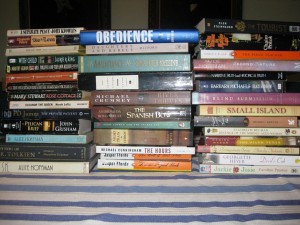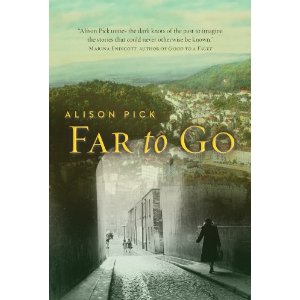Hearing of the death of Elizabeth Edwards yesterday reminded me of my favourite story from Melissa Banks’ first collection, The Girl’s Guide to Hunting and Fishing, about the continuing adventures of Jane Rosenal. Melissa Banks is a much underappreciated and underestimated writer by the way (and yes, I know she is very popular, but she deserves much more attention than she already receives), in that way women who write about love are never taken seriously as authors.
Anyway, my favourite story is the second last one in the book, “You Could be Anyone.” It marks a shift in tone from the rest of collection, both because it is written in the second person, and because it tells the story of how Jane discovers she has breast cancer while she is dating not the right man. The relationship ends, and radiation treatments begin. Jane sees a therapist.
It was easier when the menace came from the outside, you tell a therapist; she nods, neither agreeing nor disagreeing. Thursday after Thursday, you tell her about your relationship with him. You talk and talk, waiting for the cure. After a while, though, it occurs to you that even a perfect understanding of failed love is the booby prize.


